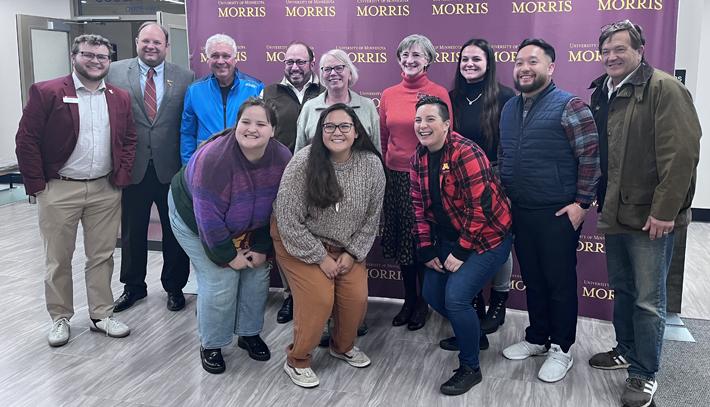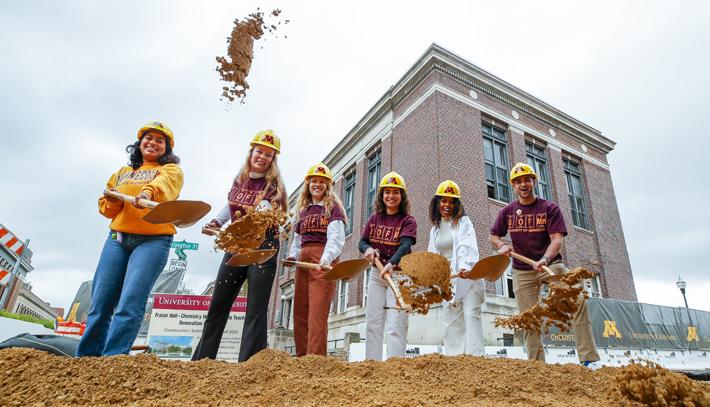In May 2024, the Minnesota Legislature adjourned sine die without passing a capital investment bill.
Capital investment bills primarily fund facilities and infrastructure projects through state general obligation (G.O) bond proceeds and require a 60% vote to pass the Minnesota Legislature. Although the governor proposed $102.9 million for the University’s HEAPR request in January, the House and Senate were not able to garner the 60% majority vote it needed to pass their G.O. bond proposal, which included $60 million for the University’s HEAPR request.
During the 2024 Minnesota legislative session, the Board of Regents requested $500 million for more than 150 Higher Education Asset Preservation and Replacement (HEAPR) projects on four campuses and 11 research and outreach centers — currently, nearly 25% of facilities throughout the system are in poor or critical condition. Projects will address building accessibility needs, fire protection systems, leaky roofs and windows, asbestos abatement and other core maintenance issues that must be corrected to provide safe and usable spaces.
What is HEAPR?
HEAPR—Higher Education Asset Preservation and Replacement—funding was created in 1994 as a separate category of state capital investment appropriations to preserve and replace existing higher education facilities and recognize the uniqueness of the buildings and properties owned by the University of Minnesota. Read the HEAPR statute–Minn. Stat. § 135A.046.
Project examples
Heating Plant – Crookston campus
$6 million in state funding
Replace deteriorated equipment inside the Crookston campus’ heating plant, as well as related utility infrastructure to improve safety within the plant and reliability of heat and hot water. Built in 1911, the Heating Plant serves the entire campus, comprising 40 buildings totaling approximately 500,000 square feet. Major improvements were made to improve the reliability of campus electrical infrastructure in recent years. This project will help avoid future mechanical failures that could cause major issues and disruptions, including potential disruption of heating to the entire campus.
Heller Hall – Duluth campus
$15.75 million in state funding
Built in 1958 and used primarily by the earth and environmental science and the pharmacy schools, Heller Hall is in critical need of asbestos abatement, fire/life safety upgrades including fire alarm, sprinklers, plumbing, electrical, and HVAC updates. Many of the systems in this facility are beyond their useful life. A steam line runs under Heller Hall, creating extreme heat issues in the building. This building is also a main throughway on campus, connecting key buildings and leading to the student center.
Multi-Ethnic Resource Center – Morris Campus
$6 million in state funding
Constructed in 1899, this building serves Office of Equity, Diversity and Intercultural Programs, the Native American Student Success Program, the Resource Center for Gender, Women and Sexuality, and the student newspaper. A ramp was added to the lower level, but the building lacks an elevator and other basic accessibility infrastructure, as well as modern life safety and building systems. HEAPR funds would be used to install an elevator, create accessible bathrooms, and replace the original steam heating system.
Eddy Hall – Twin Cities campus
$12 million in state funding
Built in 1886, Eddy Hall is the oldest building on the Twin Cities campus. The building is now vacant and no longer functional due to physical conditions (accessibility, HVAC, structural aging). Renovation of Eddy Hall will create approximately 20,000 square feet of office and student services space, add fire safety features and provide major structural repairs. This project will support a larger space optimization plan in the Historic Knoll Area by enabling other programs to vacate obsolete space.

